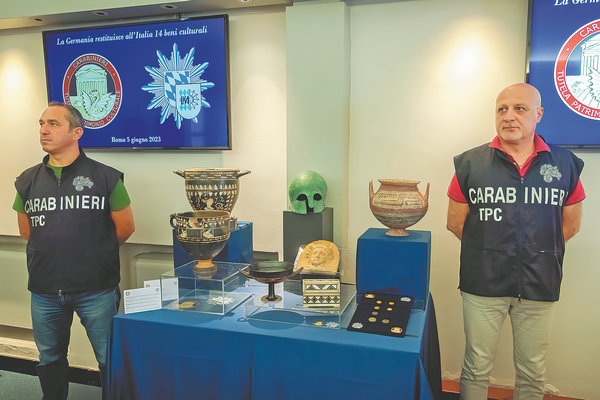

Efforts welcomed
Even though efforts in repatriating artifacts have been widely welcomed, it has long been argued in some artistic circles that somehow Indigenous people cannot be trusted to curate their cultural heritage and that artworks are best preserved in the developed world.
It has also been argued that by being in the West such objects were preserved for posterity, and that had they been left where they were they would have been lost to humanity.
Mark Horton, professor of archaeology at the University of Bristol in England, dismissed the claim in an article published online as "specious" and "a product of colonialism".
"This is a specious argument, rooted in racist attitudes that somehow Indigenous people can't be trusted to curate their cultural heritage. It is also a product of the corrosive impact of colonialism."
Wang said the premise of the theory is invalid because taking historical artifacts from other countries without permission is illegal in the first place.
There is still a long way to go, she said, adding that returning artifacts requires joint efforts at home and abroad. She cited artifacts looted from the Old Summer Palace in Beijing in 1860, most of which are still scattered throughout the world. The bronze sculpture of a horse's head was repatriated in December 2020.
Any country that holds looted relics or works of art should show sufficient respect for them and for ethnic groups and countries, Wang said.
"When exhibiting them publicly it is incumbent on the country that holds them to detail their history and origins, and to tell of how they ended up far away from their original owners."